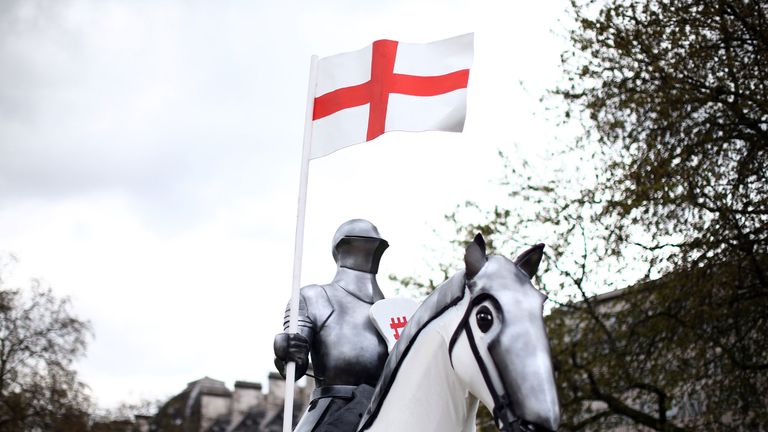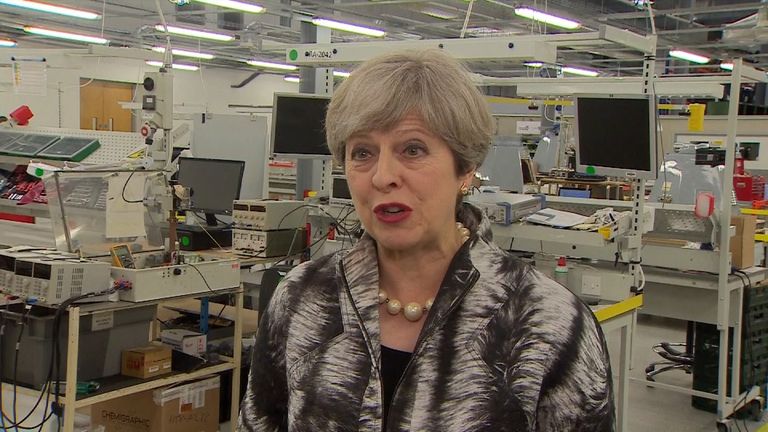Labour wants to create four patron saints' day bank holidays
Jeremy Corbyn says the UK will get four new bank holidays that will "bring together" the home nations if Labour wins the election.
Monday 24 April 2017 11:59, UK
A Labour government will seek to create four new UK-wide bank holidays on the patron saint's day of each of the home nations, Jeremy Corbyn has said.
Speaking today on St George's Day, the Labour leader said the move would bring together England, Scotland, Wales and Northern Ireland, while giving workers a well-deserved break.
But a Conservative source told Sky News that the British economy "would be on permanent holiday if Mr Corbyn got near Downing Street".
Under the proposal, there would be public holidays on St David's Day (1 March), St Patrick's Day (17 March), St George's Day (23 April) and St Andrew's Day (30 November).
:: Can we really afford to have more bank holidays?
Mr Corbyn said: "For years, Britain's workers haven't had a proper pay rise, with wages for most people still below 2007 levels.
"After seven years of painful austerity, our workers deserve a break - and under a Labour government, they will have the opportunity of four more days off a year.
"The four nations that make up our great country have rarely been more divided due to the damaging and divisive policies of this Conservative Government."
Meanwhile, Theresa May is expected to propose slashing energy prices by as much as £100 for 17 million families in the Conservative manifesto.
The Prime Minister will call for a cap on gas and electricity bills for seven out of 10 households that pay standard variable tariffs.
Allies of Ed Miliband, though, have accused Mrs May of "stealing" his flagship 2015 plan as part of her bid to win seats in Labour's northern heartlands.
The policy is the centrepiece of a manifesto that the Conservatives say will set out a bold vision for Britain, with new rights for workers and proposals to tackle rogue bosses.
UKIP look likely to tack right in this election with a pledge to ban the full-face veils worn by some Muslim women.
Party leader Paul Nuttall will launch what he calls an "integration agenda" on Monday.
The election manifesto is expected to include banning wearing the burka and niqab in public which they argue is a barrier to social harmony, as well as a security risk.
He will also propose outlawing Sharia law - the religious rules that form part of Islamic tradition.
And UKIP will call for postal voting to be largely abolished, because of concerns over electoral fraud.
In the latest election polls, a Comres poll for Sunday Mirror found that 50% of people would vote Conservative, 25% would vote Labour, 11% would vote Liberal Democrat and 7% UKIP.
The 50% support is a Comres poll's highest for a party since 1991.
An opinium poll of 2,003 people for the Observer found that 45% of voters would back the Conservatives if an election was held tomorrow - up seven points from last week - with 26% saying they would vote Labour (down three points), 9% for UKIP (down five points) and the Lib Dems on 11% (up four points).
YouGov for The Sunday Times, meanwhile, also has the Conservatives well ahead on 48% - a 23-point lead over Labour on 25%. It has the Lib Dems on 12% while support for UKIP is just 5%.





